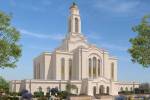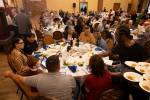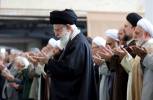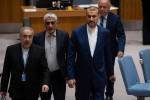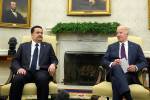Local government shows no sympathy for the devil
A victory for the devil? Or the U.S. Constitution?
That's the interesting question emerging in light of the Phoenix City Council's decision to cancel its traditional invocation after the Satanic Temple sought to join the roster of clergy offering a pre-meeting prayer.
Rather than let temple members do the honors, the council voted 5-4 to replace the invocation with a moment of silence instead.
The decision comports with the controversial 2014 U.S. Supreme Court decision — Town of Greece [N.Y.] v. Galloway — which held that prayer before a government meeting doesn't violate the Constitution, provided it doesn't denigrate other religions or seek to convert people. The ruling came even though the town featured almost exclusively prayers by Christian ministers drawn from local congregations.
But governments still can't control the content of prayers, say, by choosing who gets to offer the invocation.
The vote upset at least one member of the Phoenix City Council: Councilman Sal DiCiccio said erasing public prayer is precisely what members of the Satanic Temple want. "A moment of silence is basically a banning of prayer. It's to agree to the Satanic goal to ban prayer," he said.
Preposterous. Members of the audience and the council can still pray during the moment of silence, or at any other time outside of the meeting, when prayer might be more appropriate. They just won't be able to force those who don't share the beliefs of the officiant to participate. And the fact that it took the Satanic Temple to get people to realize this is a staggering irony.
Here's another: The Satanic Temple doesn't believe in an actual, personal devil as much as a spiritual resistance to autocracy. Meanwhile, Christians in particular believe in a God who asks to be worshipped in spirit and in truth — not by forcing nonbelievers into a de facto church service.
Here in Nevada, there's plenty of public praying. Invocations are offered every single day of the 120-day legislative session, by local Carson City ministers or even by members of the Senate and Assembly. The city councils of Las Vegas, North Las Vegas and Henderson, as well as Clark County, all begin their meetings with prayer.
Prayer-givers are selected differently, depending on the agency. Clark County relies on the Interfaith Council to suggest ministers. North Las Vegas' City Clerk queries local churches every year for willing participants. Henderson reviews new church applications and asks ministers if they'd like to offer pre-meeting prayers. Las Vegas allows ministers to apply to give the invocation, and prohibits discrimination against any religion.
Thus far, however, no one representing Old Scratch has shown up at a local government meeting or the Legislature to kick things off. It may be interesting to see what happens if they ever did.
In the meantime, it might be a good idea to embrace Phoenix's solution, eliminating prayer entirely. People don't attend local or state government meetings for reasons religious as much as civic.
Or maybe we should adopt an invocation that everybody — from atheist to true believer — could embrace. How about something like this:
"Citizens of Clark County, Nevada and the United States of America, welcome. We gather here today to address ourselves seriously and fully to the public's business, in the sincere belief that — using reason, logic and good will for each other — we can solve all of them. We ask that each of us lend his or her time, talents and intellect to the task at hand, in the spirit of forming a more perfect union."
Amen.
— Steve Sebelius is a Review-Journal political columnist and co-host of the show "PoliticsNOW" airing at 5:30 p.m. Sundays on 8NewsNow. Follow him on Twitter (@SteveSebelius) or reach him at 702-387-5276 or SSebelius@reviewjournal.com.


















